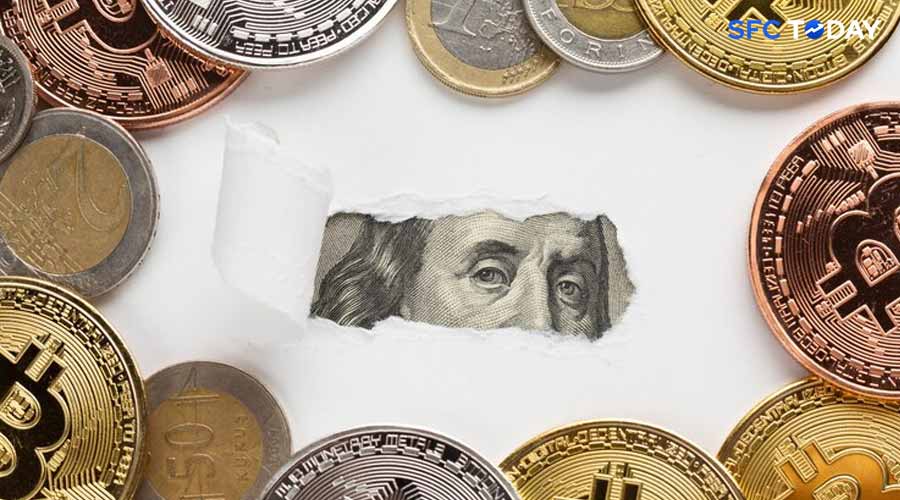How Global Tensions Influence Cryptocurrency Prices: Key Factors Driving Volatility
Cryptocurrency, over the shortest period, has become among the most important classes of assets that exist in the global financial market and attracts investors to them with the potential for high returns as well as through the decentralization factor. Just as in the case of traditional financial assets, however, cryptocurrencies are not exceptions from external influences, especially on geopolitical events. Knowledge about how such events affect the prices of cryptocurrencies could much better enable savvy investments in this volatile market.
The Nature of Geopolitical Events
Geopolitical events are a broad and inclusive list that includes political instability, international conflict, economic sanctions, and changes in government policies. Such events have the potential to create uncertainty in world markets, influencing investors’ behavior and asset prices.
Cryptocurrencies are often viewed as an alternative investment. They are ultra-sensitive to geopolitical events due to the speculative nature of cryptocurrencies and the general perception of cryptocurrencies as a hedge against more traditional financial systems.
Flight to Safety
It is normally in geopolitical tensions that investors seek capital-protecting safe-haven assets. Conventionally, these have been gold and government bonds. However, with the narrative that more and more people speak of Bitcoin as digital gold, a decentralized store of value, more and more investors look to cryptocurrencies during geopolitical crises. The above increases demand for these cryptocurrencies and pushes their prices.
For example, with the outbreak of COVID-19, the price of Bitcoin skyrocketed since individuals were looking for alternative assets to traditional assets as the economies began crumbling. Again, the Russia-Ukraine conflict saw Bitcoin experience price fluctuations because people reacted to what was happening.
Impact of Economic Sanctions
Economic sanctions by one country against another can be very devastating to the world of cryptocurrency. After the imposition of sanctions, access to traditional financial channels is cut off, and individuals and organizations are left with no choice but to look for cryptocurrencies as an alternative means of operation. Higher demand translates to higher currency prices.
In fact, when the US sanctions tightened on Iran, trading volumes picked up inside the country on Bitcoin. As the order for more controls was issued on the financial flows in relation to other countries, more Iranians began using Bitcoin to bypass these controls. Increasing demand brought, of course, increased prices.
Regulatory Responses
Geopolitical events have, in general, typically elicited reactions in the form of regulatory actions from governments and financial authorities. Such reactions significantly influence cryptocurrency prices. For example, in case a government sets up strict regulations on cryptocurrency trades or mining, possibly as a reaction to geopolitical tensions, this might be a way of dampening market confidence as well as prices.
Positive policy shifts can further encourage investor confidence, thereby driving prices up. This was the case when Japan declared Bitcoin as a legal payment method; it immediately gained a hundred percent adoption and drove the price of Bitcoin up within minutes.
Market Sentiment and Speculation
Cryptocurrency prices are highly influenced by the market sentiment in geopolitical events. News and rumors surrounding geopolitically significant developments may lead to speculative trading, hence marked price variations. Traders react swiftly to the news with moves that are speculative on a few cryptocurrencies to their expectations of how current scenarios would play out.
For example, during the Brexit referendum vote, uncertainty over the outcome led to a surge in price volatility in the cryptocurrency markets. Traders’ speculations on the economic impacts of Brexit caused biting price swings for Bitcoin as well as other cryptocurrencies.
Technological and Strategic Implications
A few geopolitical events also have technological and strategic implications for cryptocurrencies. For instance, in unstable countries with political unrest, there could be an escalating attraction towards blockchain for transparency and security purposes during financial transactions. This would spur innovation and adoption and positively impact the cryptocurrency price.
There is a possibility that the strategic approaches of countries towards cryptocurrencies might change with geopolitical tensions. Some countries might consider cryptocurrencies as a tool to achieve economic sovereignty and reduce dependence on traditional financial systems. Increased support and investment by the government may also push up cryptocurrency prices.
Case Study: Russia-Ukraine Conflict
A prime example of the recent geopolitical situation around cryptocurrencies is the Russia-Ukraine conflict. As tensions rose, trading volumes both in countries began to grow appreciably. There is a view that Ukrainians will use Bitcoin to finance their assets away from economic instability and that Russians will use the digital currency to bypass financial sanctions from Western countries.
The conflict, however, had an added consequence in terms of showing the role of cryptocurrencies in humanitarian work. Several bodies raised funds for relief efforts using Bitcoin and other forms of cryptocurrencies, showing the uses of digital assets in times of crisis. The exposure and adoption this entailed meant prices were also volatile during the conflict.
Conclusion
Geopolitical events have the potential to deeply influence the prices of cryptocurrencies by the behaviors of the investors, market sentiments, and regulatory response. While on one hand cryptocurrencies can be an important hedge against traditional financial systems in times of uncertainty, they tend to be very volatile and fluctuate significantly due to speculative trading and geopolitical developments.


